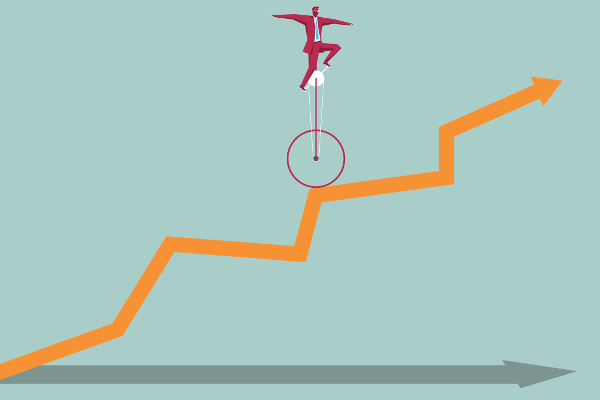Here’s why it is worth investing small amounts
DIY Investor Toolkit: Here’s how far £100 a month can go in the stock market over five years.
18th May 2018 12:00
by Marina Gerner from interactive investor
DIY Investor Toolkit: Here’s how far £100 a month can go in the stock market over five years.

Among millennials who don’t invest in the stock market one common objection is: ‘It’s too much of an effort for something I’d only get a few hundred quid out of it.’ But is this sentiment justified?
To begin with, there are two glaring reasons for why millennials shy away from investing. For one, millennials mistrust financial markets, given that they – or we – came of age and entered the job market either during or shortly after the financial crisis.
It is also the case that those in the early twenties to mid-thirties lack the financial resources of previous generations. According to a recent report from the Resolution Foundation, millennials today suffer from an earnings squeeze and a lack of progression in the job market, while having to spend far more of their income on rent and housing than previous generations.
Putting any money into the stock market can be scary if you don’t have much of a cash buffer, ideally three months' salary in cash.
-DIY investor toolkit: three tests to pass before starting investing
Those who do have cash spare next need to weigh up whether to go down the saving or investment route. Savings rates are on the rise, but to beat inflation, currently 2.5 per cent, you will have to lock your money away for at least five years.
Moreover, history shows that over the long term, stock market returns have the upper hand over cash. Data from the 2016 Barclays Equity Gilt Study shows that British shares over the past 116 years have typically returned 5 per cent annually (including share price growth and dividend payputs), while cash has returned 0.8 per cent.
Investing small amounts, of say £100 a month, can pay off. If you manage to save £100 a month for five years this would add up to £6000. Invested in the stock market, however, this sum can grow through compounding. Many online brokers have a minimum threshold of £100, but others allow as little as £25 a month.
We have asked Russ Mould, investment director at AJ Bell to crunch some figures to see how much of a return £100 a month could have made. If £100 a month had been invested into a passive global tracker fund over five years, for example Vanguard LifeStrategy 100% Equity, the sum would have grown to £8,466. With the actively managed global equity fund Fundsmith Equity, which is the most-popular investment fund on our sister website Interactive Investor, it would have grown to £10,038. And with a sustainable investment trust, such as Impax Environmental Markets, it would have grown to £8,304.
However, it’s crucial to remember that the stock market rises and falls in cycles, and that the last five years have been a bull market. Mould says: ‘Pretty much everything and anything has gone up for the last five years thank to quantitative easing and record-low interest rates.’ He explains that the exercise we have done shows what can be achieved with £100 a month and it’s a pretty powerful one, but bear in mind the past is no guarantee for the future.
Keep up to date with all the latest financial news and investment tips by signing up to our newsletter. Email subscribers will also receive a free print copy of Money Observer magazine.
This article was originally published in our sister magazine Money Observer, which ceased publication in August 2020.
These articles are provided for information purposes only. Occasionally, an opinion about whether to buy or sell a specific investment may be provided by third parties. The content is not intended to be a personal recommendation to buy or sell any financial instrument or product, or to adopt any investment strategy as it is not provided based on an assessment of your investing knowledge and experience, your financial situation or your investment objectives. The value of your investments, and the income derived from them, may go down as well as up. You may not get back all the money that you invest. The investments referred to in this article may not be suitable for all investors, and if in doubt, an investor should seek advice from a qualified investment adviser.
Full performance can be found on the company or index summary page on the interactive investor website. Simply click on the company's or index name highlighted in the article.